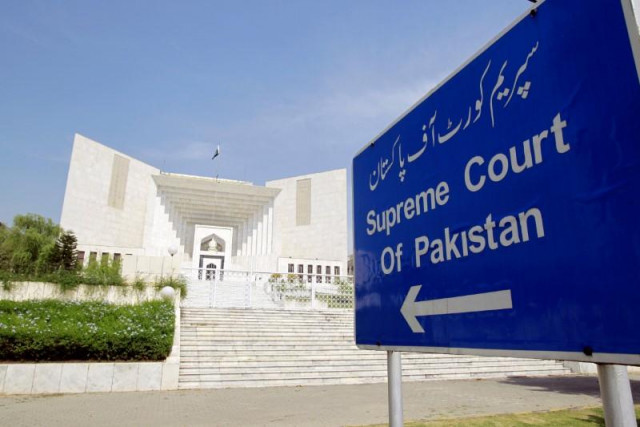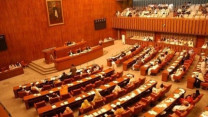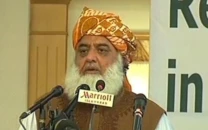FBR is a burden on country: SC judge
Justice Gulzar says 22,000 employees only manage to recover 20% of revenue

A view of the Supreme Court of Pakistan in Islamabad. PHOTO: REUTERS
“Disband the FBR and then see how much money is collected,” remarked Justice Gulzar Ahmed, who was heading a two-member bench hearing an appeal filed by the board against the restoration of the services of its employee Mohammad Anwar Goraya.
“There are hundreds of billions of rupees [in unrecovered taxes] every year and the 22,000 employees at the FBR’s disposal only manage to recover 20% of revenue,” the judge said.
He noted that 80% of revenue is collected in indirect taxes.
The court later rejected the FBR’s appeal against its employee.
Justice Gulzar had criticised the FBR’s performance in another case last month as well, saying that the tax collection body was in shambles.
The case, which involved the recovery of Rs90 million from the FBR officials who had received undue tax refunds by establishing three fake companies in Karachi, was heard by Justice Gulzar, then serving as the acting chief justice of Pakistan, and Justice Munib Akhtar.
Grilling the FBR authorities for submitting unsatisfactory reply, the judge said the board was trying to protect its officers and a huge amount of Rs90 million has been sacrificed in the process.
“Who minted this money? Who will recover this sum of Rs90 million? Only removal from service is not enough,” the judge said, adding, “The FBR is in shambles.”
Earlier this year, the Lahore High Court put the FBR in a spot of bother after it declared that the latter’s powers to keep confidential the parameters, under which taxpayers were selected for audit, were unconstitutional. The FBR normally exercises these powers under Subsection 1A of Section 214c of the Income Tax Ordinance, 2001.
The court set aside all notices issued under Subsection 1A of Section 214c to various taxpayers selected for audit and also denied access to the parameters under which they are selected.
Justice Abid Aziz Sheikh partially allowed all the writ petitions moved by taxpayers challenging Subsection 1A. He interpreted that 1A of Section 214c was a violation of Article 10-A and 19-A of the Constitution of Pakistan. These articles guarantee the right of a fair trial to every citizen and the provision of all necessary information.



















COMMENTS
Comments are moderated and generally will be posted if they are on-topic and not abusive.
For more information, please see our Comments FAQ